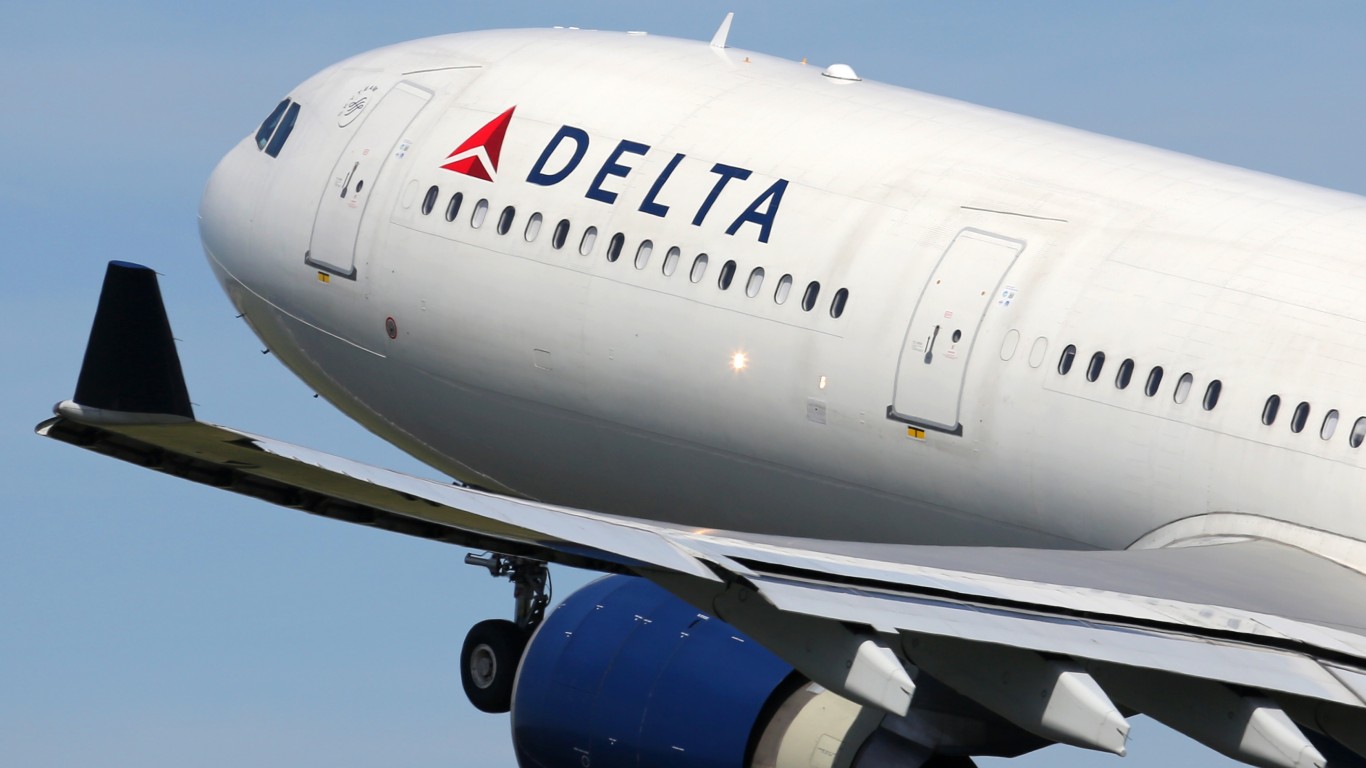

Boeing Co. (NYSE: BA) is scheduled to report first-quarter earnings before markets open Wednesday. Expecting results to be anything other than awful is a fool’s errand. If there is any good news forthcoming from Boeing, it will almost certainly not be available Wednesday morning.
Analysts are looking for the company to post a per-share loss of $1.58 on revenues of $17.31 billion. A year ago, first-quarter earnings per share totaled $3.16 on revenues of $22.92 billion. The grounding of the company’s 737 Max commercial jet was ordered in mid-March and more than a year later remains in effect. There is still little visibility into when the 737 Max will fly again, given the added complications from the COVID-19 outbreak.
When one of Boeing’s best customers, Southwest Airlines Co. (NYSE: LUV) reported results Tuesday morning, the airline said it had removed the 737 Max from its flight schedules until the end of October and that Boeing has agreed to a reduced delivery schedule through 2021.
Over the past weekend, Boeing terminated its joint venture plans with Brazilian aircraft maker Embraer S.A. (NYSE: ERJ). Embraer already has begun arbitration proceedings against Boeing for the cancellation. While Boeing said that the two companies could not agree on final terms, the more likely scenario is that Boeing cannot afford to pay the agreed $4.2 billion for control of the joint ventures, one of which would have given the company a small jet to compete with the Airbus A220 that the European company acquired from Canada’s Bombardier.
Earlier this month, Boeing announced a voluntary layoff plan and said that details of the plan’s benefits and pay would follow in three or four weeks. At its annual shareholders meeting on Monday, the company reportedly said that eligible employees will be offered one week’s pay for each full year of service, up to a maximum of 26 weeks, in addition to three months of continuing health care benefits.
Layoffs likely are not far behind, regardless of how many employees take Boeing’s voluntary offer. Boeing has until Friday to decide whether to accept federal funds that have been earmarked for national security priorities. What Boeing has to give up in order to get that aid is likely to determine whether it chooses to accept the funds.
Job cuts follow from production cuts, and Boeing is not the only company that will suffer. The company supports an estimated million jobs at its hundreds of U.S. suppliers. All will feel the pinch as they rebound from plans to build more 737 Max aircraft to a sudden shift to building fewer. New equipment costs are sunk so job cuts are a foregone conclusion. The only issue is how severe they’ll be.
What Calhoun made abundantly clear at Monday’s shareholders’ meeting is that when the commercial airline market stabilizes, it “will be smaller and our customers’ needs will be different,” according to a report in the Seattle Times.
Calhoun also said Boeing won’t be paying dividends for at least three to five years as it works to restore its balance sheet. The company ditched its stock buyback program last year.
Boeing stock traded up fractionally on Tuesday, at $129.00 in a 52-week range of $89.00 to $391.00. The 12-month price target is $154.11.
Sponsored: Attention Savvy Investors: Speak to 3 Financial Experts – FREE
Ever wanted an extra set of eyes on an investment you’re considering? Now you can speak with up to 3 financial experts in your area for FREE. By simply
clicking here you can begin to match with financial professionals who can help guide you through the financial decisions you’re making. And the best part? The first conversation with them is free.
Click here to match with up to 3 financial pros who would be excited to help you make financial decisions.
Thank you for reading! Have some feedback for us?
Contact the 24/7 Wall St. editorial team.
 24/7 Wall St.
24/7 Wall St.
